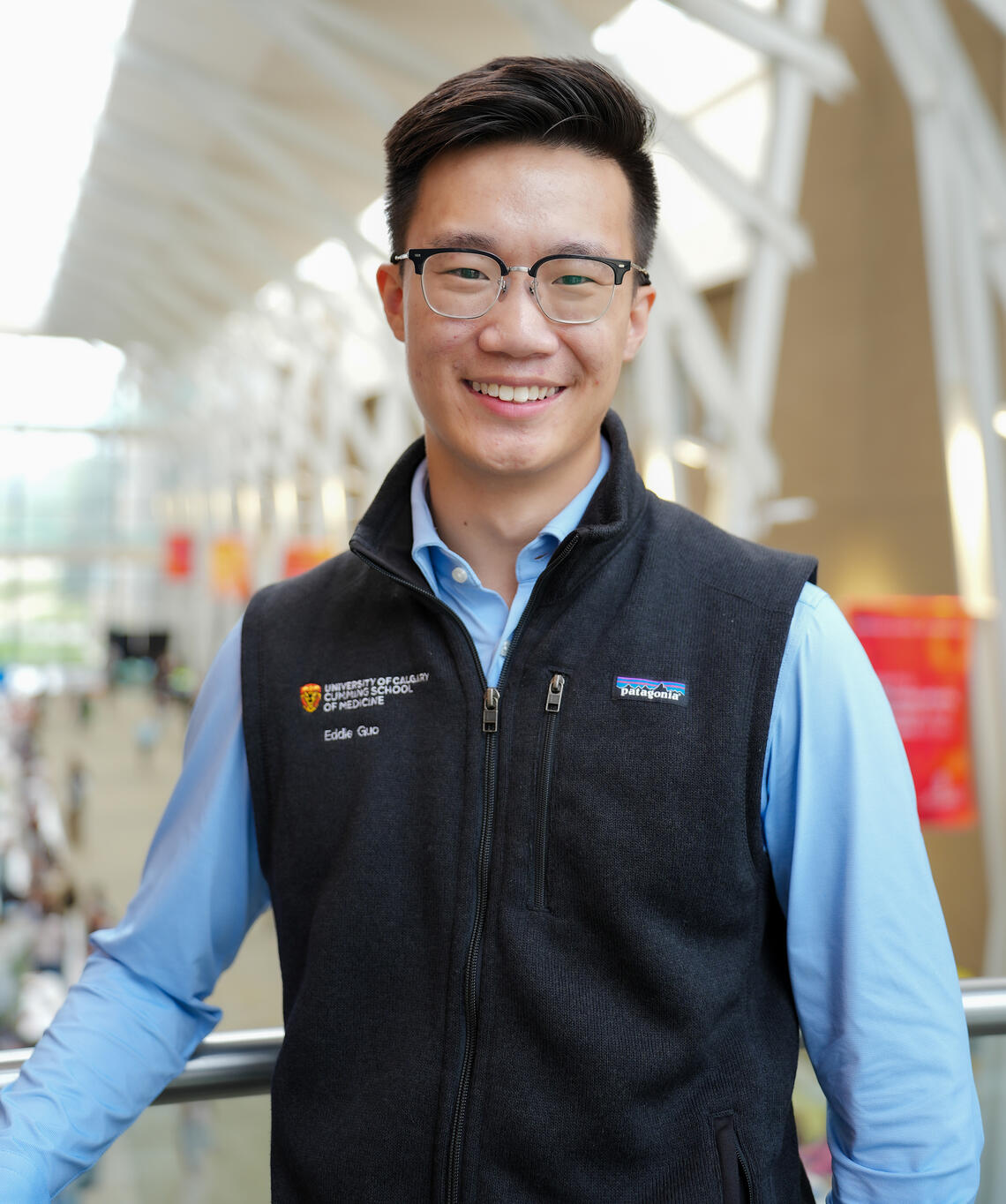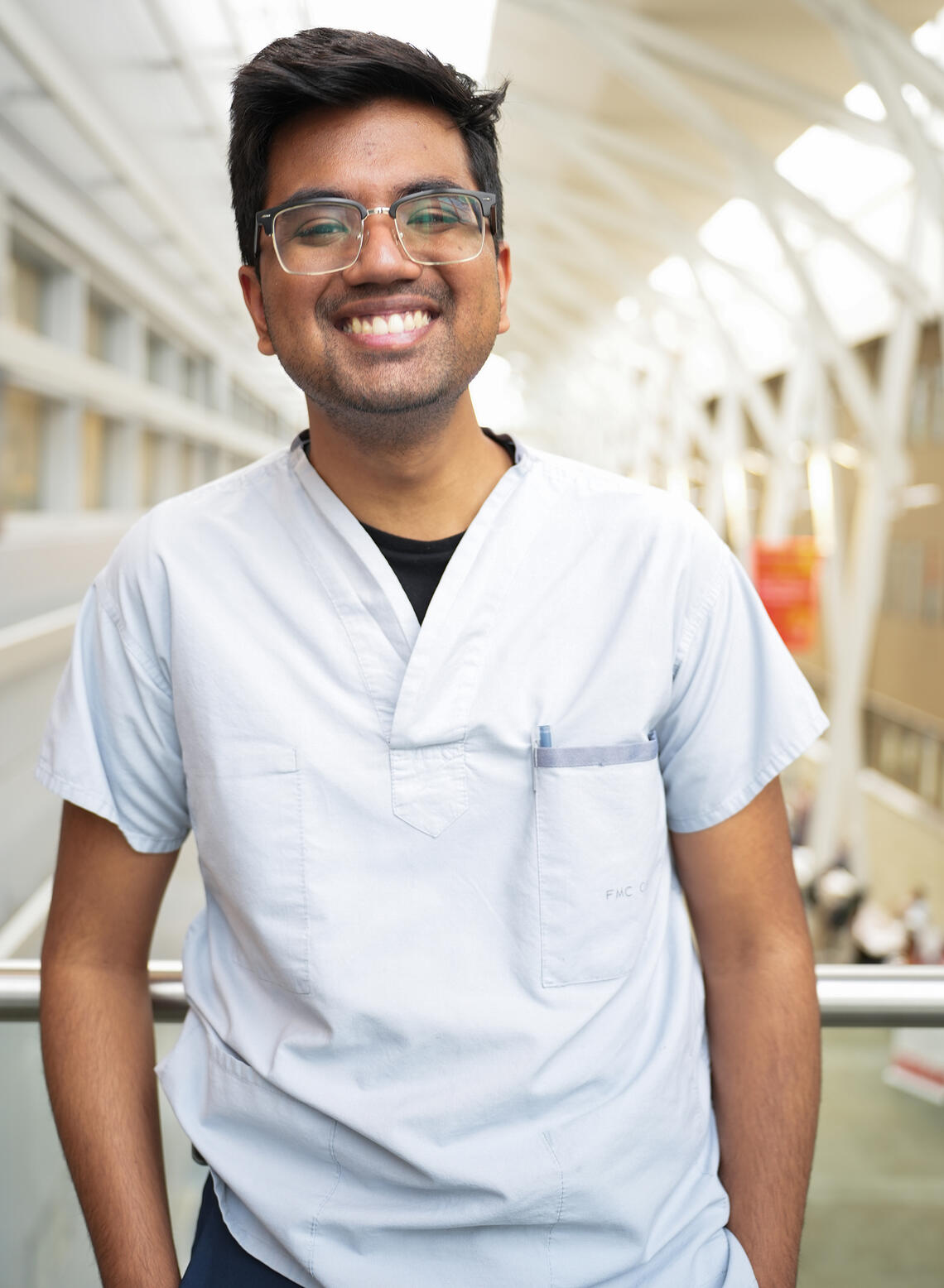Sept. 22, 2023
UCalgary students create app to help medical students learn how to talk to patients

Eddie Guo did a lot of self reflection and realized he needed more practice talking to patients to become an excellent doctor. But how? Medical education includes opportunities for students to practise their communication skills with standardized patients (actors who pretend to have a medical condition); however, Guo felt he needed additional interactions to improve.
“It’s really hard to practise communication skills with friends,” says Guo, a second-year medical student at the Cumming School of Medicine (CSM). “It’s difficult to replicate what a professional actor can do. Also, when you’re in clinic, or shadowing someone, patients don’t give feedback on a person’s communication skills.”
Guo wondered if there was a way to use AI (artificial intelligence) to create a platform to practise inquiry-based conversations. As a programmer, Guo knew that large language models, in particular OpenAI’s GPT, could provide multiple simulated interactions with patients, feedback, and examples of medical documentation. He just had to build it.
“I inputted several scenarios representing the first interaction with a patient in an emergency department or at a doctor’s office. Typical scenarios that would prompt a person to seek out a doctor, for instance, abdominal pain, difficulty breathing or the need to refill a prescription,” says Guo. “To provide accurate feedback I incorporated the same rubric we are evaluated on in the medical education program.”
The Calgary-Cambridge guides for interviewing patients were developed by Jonathon Silverman, University of Cambridge, Suzanne Kurtz, University of Calgary, and Julie Draper. The first publication was in 1998. The evidence-based guidelines are still used for medical education throughout the world.

Eddie Guo
Guo created OSCE-GPT, an objective structured clinical examination (OSCE) program where the computer is the patient. Users choose whether the patient is male or female and select a specific scenario, or a random scenario where the computer makes the choice.
“As a resident I see what a critical skill communication is,” says Dr. Mehul Gupta, MD ’23, collaborator on the project. “How you phrase things and approach situations matters. Communicating effectively requires practice. This system has the promise to really change the way health professionals interact with patients.”
Gupta adds the interaction with the computer is surprisingly human like. The app is available to anyone, for free. Users can speak any language they want, and the app will translate it into English. Within the first month of the app’s launch, over 550 health-care trainees from Canada and across the world including Europe, India, Saudi Arabia, and the United States signed on.

Mehul Gupta
“As someone who has worked in clinical education and virtualization for over a decade it's inspiring to see the fresh strategies Eddie and Mehul bring to this challenge,” says Mike Paget, manager, academic technologies, Undergraduate Medical Education, CSM.
“OSCE stations require a room, a preceptor, an actor, and a student — to have any additional practice opportunities at an almost zero cost is remarkable.”
The clinical scenarios also include diagnostic decision-making and sharing bad news.
“Developing empathy is a critical skill for health professionals and the real-world can be intimidating,” says Guo. “The platform offers a safe environment so someone can practise and fumble and learn from their mistakes so they can be more confident when they do see a real patient.”
The development of the app is supported by the Canadian Federation of Medical Students. Inspired by its usefulness, Guo created another platform to practise for interviews. He plans to roll out a more refined version to help Canadian medical students prepare for residency matching.







